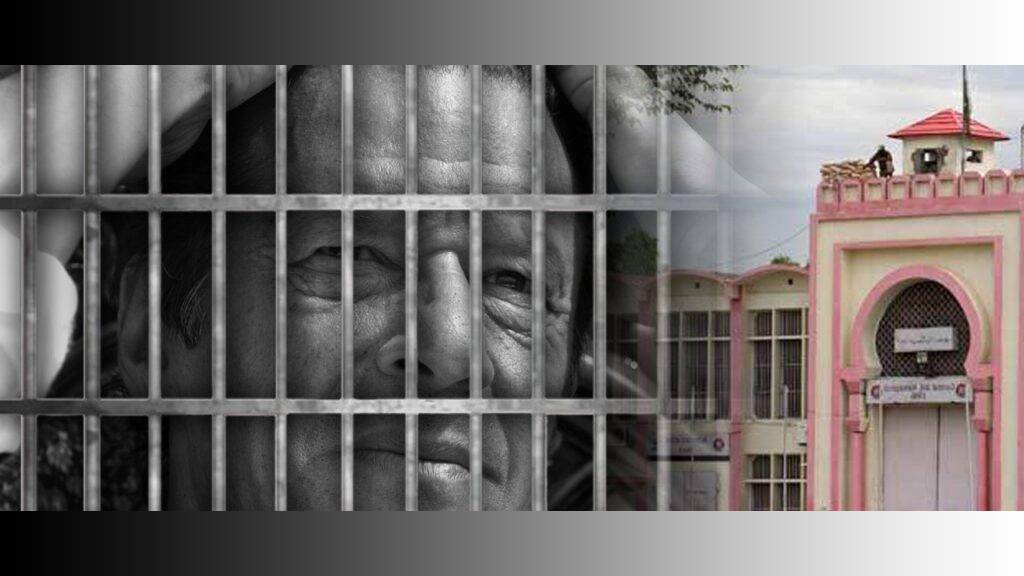In a dramatic and deeply alarming incident, a drone attack near Adiala Jail in Rawalpindi, Pakistan, has raised serious national security concerns. The attack, which preliminary reports suggest may have involved Indian-manufactured drones, targeted the high-security premises where former Prime Minister Imran Khan is currently incarcerated. While Imran Khan remains reportedly unharmed, the attack has resulted in the deaths of two individuals and caused considerable damage to parts of the jail’s infrastructure.
Table of Contents
Overview of the Incident
According to initial intelligence sources, the drone attack took place early in the morning on May 10, 2025. Witnesses and local residents near Adiala Jail reported hearing loud explosions, followed by smoke rising from the vicinity of the main gate. Security forces immediately cordoned off the area as emergency response teams rushed to the site.
Eyewitnesses stated that the drone crashed into the outer wall of the jail compound. The explosion led to the partial collapse of sections of the wall, creating panic both within the facility and among the surrounding civilian population.
Imran Khan’s Safety and Emergency Measures Adiala Jail
Former Prime Minister Imran Khan, who has been detained in Adiala Jail since his arrest on corruption and sedition charges, was reportedly in a separate high-security zone within the compound at the time of the blast. According to sources within the Interior Ministry and the Pakistan Rangers, he remains safe and unharmed.
However, due to the perceived nature of the attack and the risk of further security breaches, authorities have made the decision to transfer Imran Khan to his Bani Gala residence in Islamabad under emergency conditions. A high-security convoy, including armored vehicles and air surveillance, has been mobilized to facilitate the transfer.
Casualties and Damage Report
The drone explosion tragically claimed the lives of two prison security personnel, who were stationed near the main gate. At least four others sustained injuries, two of whom are in critical condition. Rescue teams from Rescue 1122 and Pakistan Army medics are on site providing emergency medical assistance and clearing debris.
The structural damage to Adiala Jail includes:
- A collapsed portion of the boundary wall.
- Damaged security watchtowers.
- Minor damage to administrative buildings.
Officials have confirmed that no prisoners escaped during the incident, and the jail remains under complete lockdown.

Preliminary Investigation and Indian Connection
Security agencies, including Pakistan’s Inter-Services Intelligence (ISI) and the Federal Investigation Agency (FIA), have launched a joint investigation into the attack. Initial forensic analysis of drone fragments suggests the use of Indian-made components, leading authorities to suspect cross-border infiltration or technological support.
Drone warfare has become an increasing concern in South Asia, and Pakistan has previously accused India of using drones for surveillance and low-intensity conflict tactics in sensitive border areas. This incident marks the first time such an attack has occurred deep within Pakistani territory targeting a high-profile political prisoner.
Political Ramifications
The attack has sent shockwaves throughout Pakistan’s political landscape. Imran Khan, the leader of the Pakistan Tehreek-e-Insaf (PTI) party and a key figure in Pakistani politics, remains a deeply polarizing figure. His continued incarceration and court trials have been the subject of national and international debate.
PTI leaders have strongly condemned the attack, calling it a “cowardly attempt” on the life of their chairman. In a press release, PTI spokesperson Raoof Hassan said, “This was not just an attack on Imran Khan but an attack on Pakistan’s democratic institutions. The nation must rise to demand accountability and transparency.”
Opposition parties and human rights groups have also demanded a thorough investigation and questioned how drones could penetrate the airspace of such a heavily fortified area.
Government Response and Heightened Security
The Ministry of Interior has ordered a nationwide security alert, particularly around political detention centers, high-profile prisons, and government buildings. Adiala Jail itself has seen a dramatic increase in military presence, including the deployment of the Pakistan Army’s Quick Reaction Force (QRF) and surveillance helicopters.
Interior Minister Mohsin Naqvi held a press conference, stating, “Pakistan will not tolerate such brazen acts of terrorism. We will identify and punish those responsible—whether they are within our borders or outside.”
Additionally, Pakistan’s Foreign Office has stated that a formal protest may be lodged with the Indian High Commission if concrete evidence of Indian involvement is found.
Media and Public Reactions
The news quickly went viral on social media, with hashtags like #AdialaDroneAttack, #ImranKhanSafe, and #IndianDroneStrike trending on Twitter (X). Citizens from all walks of life have expressed concern over the deteriorating security situation in the country.
Some analysts believe the incident might escalate tensions between India and Pakistan, especially if the Indian link is confirmed. Others fear it may be used to stifle political dissent or justify further restrictions on media and civil liberties.

International Attention
The international community is closely monitoring the situation. The United Nations, United States State Department, and the European Union have expressed concern and called for restraint, urging Pakistani authorities to conduct a transparent investigation and ensure the safety of all political detainees.
Amnesty International issued a statement saying, “The attack on Adiala Jail is deeply troubling. The safety of political prisoners and civilians must be a priority. We urge Pakistani authorities to uphold the rule of law.”
Possible Motives Behind the Attack: Adiala Jail
There is ongoing speculation about the motives behind the attack. Several theories are currently being investigated:
- Political Assassination Attempt: A deliberate attempt to eliminate Imran Khan.
- Destabilization Tactic: Meant to provoke internal unrest or escalate regional tensions.
- False Flag Operation: Some conspiracy theories suggest it could be an orchestrated event to justify a political crackdown or shift media attention from economic crises.
Until further investigation sheds light on the perpetrators and their objectives, these remain speculative.
What Happens Next?
As of now, the key next steps include:
- Forensic examination of drone parts and surveillance footage.
- Tracing drone origins through electronic signature analysis.
- Enhancing prison and VVIP security measures across the country.
- Diplomatic consultation with international stakeholders.
- Judicial review regarding the safety of political detainees.
Imran Khan’s legal team has filed an emergency plea in the Islamabad High Court demanding safer detention conditions or house arrest under constant security.
Conclusion about Adiala Jail
The drone attack on Adiala Jail marks a significant and alarming event in Pakistan’s contemporary history. While the former Prime Minister remains safe, the implications of this event are vast—ranging from national security to regional diplomacy, and from political stability to public trust in the justice system.
Pakistan now stands at a critical juncture. The nation demands accountability, security, and above all, peace. Whether this incident was an isolated act of terror or part of a larger agenda remains to be seen—but it will undoubtedly shape Pakistan’s political narrative for months to come.




